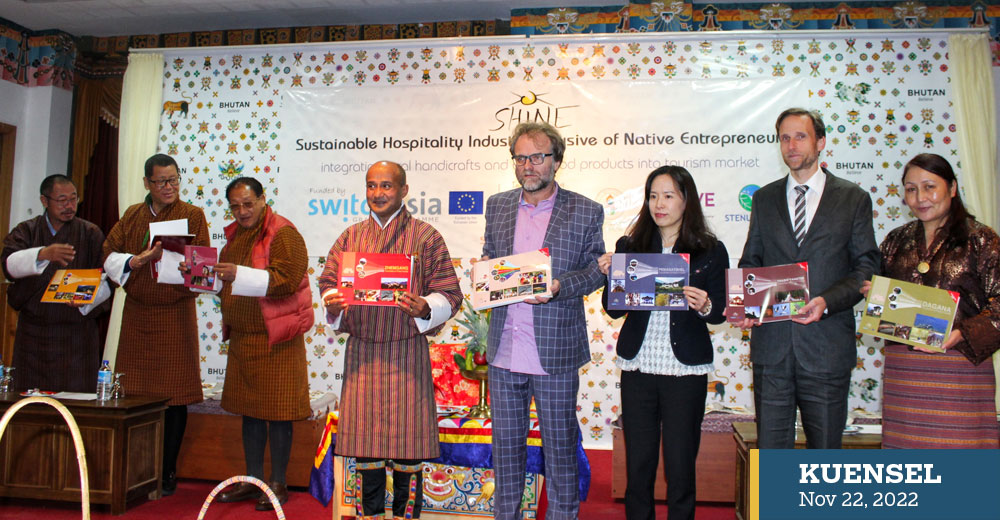YK Poudel
As a part of an initiative to promote tourism in the eastern part of Bhutan, the project Sustainable Hospitality Industries Inclusive of Native Entrepreneurs (SHINE) launched the “Uncharted Bhutan Tourism Attraction Books” and “Regional Food Program” in Thimphu yesterday.
According to Minister of Economic Affairs, Loknath Sharma such initiatives would enable tourists to get a better experience regarding indigenous products in the country.
“The project will be effective with better technology. Basically, the platform is important and ensuring that the transaction method is feasible for the customers would make it more sustainable,” he said.
The project’s lead manager, Dr Robert Wimmer, GrAT (Center for Appropriate Technology) in Austria, said that the project has employed a two-way strategy with comprehensive information on the eastern dzongkhags. The books, he said, could be used as a framework for regional tourism development and a resource map.
“While Thimphu, Paro, and Punakha hold 65.9 percent of the tourism share, all the six eastern dzongkhags combined receive only 2.3 percent of the tourism influx and the corresponding value. This project is exclusive and in-built with local partners who will continue the project,” said Dr Robert Wimmer.
Chorten Dorji, executive director of Handicrafts Association of Bhutan, said the project would be able to make a difference with cooperation among the stakeholders in strengthening Bhutan’s local economy, creating jobs and improving infrastructure while also conserving the fragile ecosystems.
“Weeks after the implementation, we noticed tourists taking interest in local products; we can achieve high value in tourism if we work on these aspects and provide an authentic experience to the tourist,” said Chorten Dorji.
The books have lists of rich tourism products in the seven eastern dzongkhag of Bhutan—Dagana, Lhuentse, Mongar, Pemagatshel, Trashigang, Trashiyangtse, and Zhemgang with detailed information on natural and cultural resources, food and beverages, handicrafts, festivals and infrastructure, among other.
On the launch of the books, Head of Cooperation of the Delegation of the European Union to India and Bhutan Franck Viault, said: “The hospitality and tourism sector offers great opportunities for strengthening Bhutan’s local economy, creating jobs and improving infrastructure while conserving the fragile ecosystems. Not only is there an economic and environmental consideration but there is a ‘people to people connectivity’ element.”
The project is being implemented in partnership with HAB (Handicrafts Association of Bhutan), BAOWE (Bhutan Association of Women Entrepreneurs), and Stenum Asia.
The five-year project worth 2.3 million Euro is being funded by European Union SWITCH-Asia programme which was initiated in 2020.


